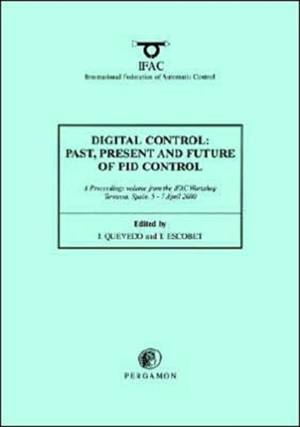
- Retrait gratuit dans votre magasin Club
- 7.000.000 titres dans notre catalogue
- Payer en toute sécurité
- Toujours un magasin près de chez vous
- Retrait gratuit dans votre magasin Club
- 7.000.0000 titres dans notre catalogue
- Payer en toute sécurité
- Toujours un magasin près de chez vous
Description
The present-day structure of PID controllers is quite different from the original analog PID controllers. Now the implementation of the PID is based on digital design, these digital PIDs include many algorithms such as anti-wind-up, auto-tuning, adaptive, and fuzzy fine tuning to improve their performances, but the basic actions remain the same.
During the last two decades, the general reluctance of researchers to use PID controllers has begun to disappear. Many of the new capabilities of digital PID controllers have been introduced by the research community. The industrial control users apply these innovations easily, even enthusiastically. PID control has become one of the most important ways for the scientific specialist in control and the users of industrial control to work together.
This workshop was organized so that the scientific world and the industrial control world could meet and discuss the present and future use of PID controllers - the successes and failures of their use and how to determine the limits of performances. This workshop was also useful for learning about control history, since the origin and evolution of PID control can provide us with keys for new development and designs.
Spécifications
Parties prenantes
- Auteur(s) :
- Editeur:
Contenu
- Nombre de pages :
- 618
- Langue:
- Anglais
- Collection :
Caractéristiques
- EAN:
- 9780080436241
- Date de parution :
- 26-10-00
- Format:
- Livre broché
- Format numérique:
- Trade paperback (VS)
- Dimensions :
- 210 mm x 297 mm
- Poids :
- 1465 g

Les avis
Nous publions uniquement les avis qui respectent les conditions requises. Consultez nos conditions pour les avis.






